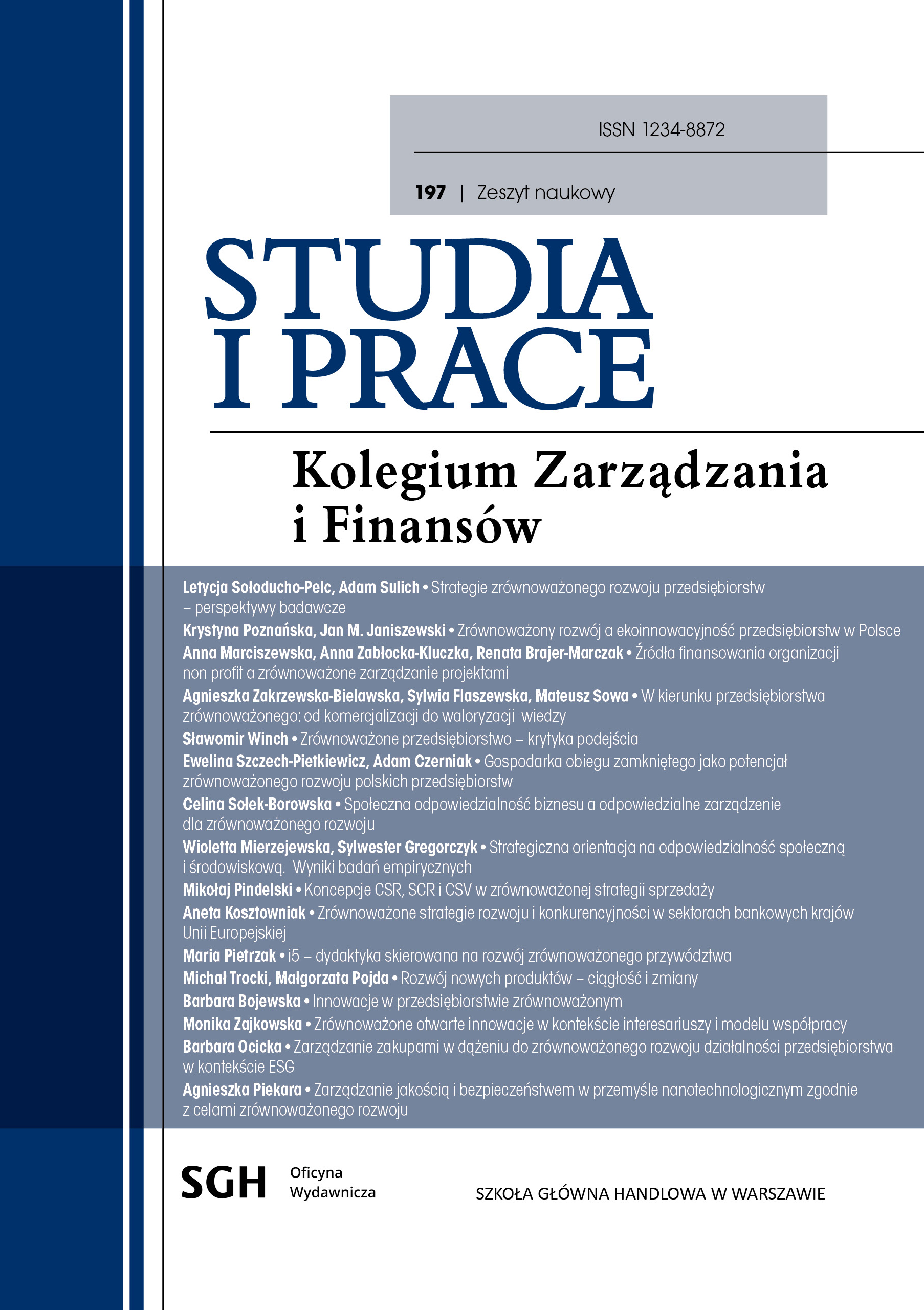i5: didactics towards sustainable leadership
DOI:
https://doi.org/10.33119/SIP.2024.197.11Keywords:
sustainable leadership, leadership development, teaching process and methods, effectiveness of teachingAbstract
Sustainable leadership is a current and important topic. In view of the growing demand for leaders who are aware of the impact of any human activity, omission or neglect on the environment and society, as well as who take concrete actions in harmony with and for the benefit of sustainable development in their professional practice, the question of how to design the teaching process to respond to contemporary conditions becomes urgent. The aim of the article is to present the i5 methodology as an effective way of shaping future leaders of business, politics, and other areas of social and economic life, which is worth implementing within virtually every field of study and on every subject. The article consists of two main parts. In the first part, a discussion was taken up on what sustainable leadership is, based on a literature review. The second part describes the i5 methodology as a concrete proposal for didactics aimed at the development of sustainable leadership. Finally, substantive and research conclusions on the topic are presented.
Downloads
References
Wydawnictwa zwarte
Arden, J. B., Andruszko, R., Dragan, W. Ł. (2021). Umysł – mózg – gen: w kierunku zintegrowanej psychoterapii. Wydanie I. Psychiatria i Psychoterapia. Kraków: Wydawnictwo Uniwersytetu Jagiellońskiego.
Avery, G. (2005). Leadership for Sustainable Futures: Achieving Success in a Competitive World. Cheltenham: Edward Elgar Publishing,
Hanson, R., Sawicka-Chrapkowicz, A. (2016). Szczęśliwy mózg: wykorzystaj odkrycia neuropsychologii, by zmienić swoje życie. Sopot: Gdańskie Wydawnictwo Psychologiczne.
Hargreaves, A., Fink, D. (2006). Sustainable leadership. San Francisco: Jossey-Bass.
Katz, L. C., Rubin, M. (1999). Neurobik. Zadbaj o kondycję mózgu. Warszawa: Weltbild.
Robinson, K., Aronica, L. (2020). Kreatywne szkoły. Oddolna rewolucja, która zmienia edukację. Gliwice: Element.
Rock, D. (2019). Ciche Przywództwo. Sześć kroków do polepszenia efektywności w pracy. Poznań: Rebis.
Artykuły naukowe
Albert, M. (1992). The Rhine model of capitalism: An investigation, European Business Journal, 4, s. 8–22.
Ferdig, M. A. (2007). Sustainability Leadership: Co-Creating a Sustainable Future, Journal of Change Management, 7 (1), s. 25–35. DOI: 10.1080/14697010701233809.
Leal Filho, W., Eustachio, J. H., Ferreira Caldana, A. C., Will, M., Lange Salvia, A., Rampasso, I. S., Anholon, R., Platje, J., Kovaleva, M. (2020). Sustainability Leadership in Higher Education
Institutions: An Overview of Challenges, Sustainability 12 (9). DOI: 10.3390/su12093761.
Luong, A., Rogelberg, S. G. (2005). Meetings and More Meetings: The Relationship Between Meeting Load and the Daily Well-Being of Employees, Group Dynamics: Theory, Research, and Practice, 9 (1), s. 58–67. DOI: 10.1037/1089-2699.9.1.58.
McCann, J. T., Holt, R. A. (2010). Defining sustainable leadership, International Journal of Sustainable Strategic Management, 2 (2), s. 204–210.
Materiały internetowe
i5 Playbook (2023). PRME, https://www.i5playbook.org/ (dostęp: 12.02.2024).
The Impactful Five (i5) | UNPRME, https://www.unprme.org/the-impactful-five-i5/ (dostęp:13.02.2024).
Downloads
Published
How to Cite
Issue
Section
License
Copyright (c) 2024 Studies and Work of the Collegium of Management and Finance

This work is licensed under a Creative Commons Attribution 4.0 International License.









